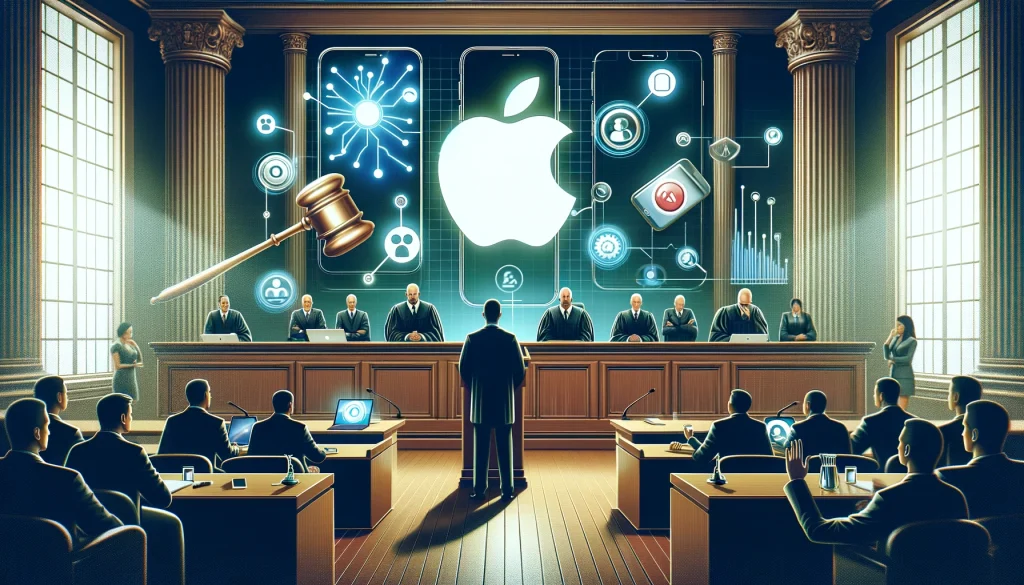A letter announcing its intention to drop a US antitrust lawsuit sees Apple claiming it isn’t a “monopolist” and “faces fierce competition” in the IT industry.
Apple’s lawyers denied U.S. allegations that it engaged in anticompetitive behavior by denying third-party access to its platform and making design decisions that “‘lock in’ users to purchasing iPhones” in a May 21 letter to New Jersey federal judge Julien Neals requesting a conference prior to its dismissal motion.
“It involves Apple making unilateral decisions about the terms and conditions on which to permit third parties access to Apple’s proprietary platform,” the company stated of its purportedly anticompetitive behavior.
In March, the Justice Department sued Apple for antitrust violations, claiming the company had a monopoly on smartphones that, among other things, permitted it to limit the features and capabilities of digital wallets and payments and that its App Store policies stifled competition.
The tech company has long blocked the usage of cryptocurrency in iOS apps or rendered it economically unfeasible for a cryptocurrency app to provide in-app purchases because of a 30% levy known as the “Apple Tax.”
“In contrast to its competitors’ more open platforms, Apple has chosen to offer users a curated, secure, and reliable experience,” the company said.
Apple said its purportedly anticompetitive behavior “occurred in other markets,” such as its policy regarding digital wallets, and that the government had failed to “properly define the relevant market or establish that Apple has monopoly power in it.”
“Those products all exist in their own separate markets with their own competitive dynamics; it is fatal that the government has not defined the appropriate market for those products.”
As the Supreme Court “has made clear that a firm’s decisions about the terms on which it chooses to deal with third parties do not constitute exclusionary conduct,” the Big Tech player stated the U.S. arguments fail.
Rejecting the DOJ’s assertion that it controls the smartphone market, Apple added that it “faces stiff competition” from Samsung and Google. While the latter dominates worldwide smartphone sales, the former boasts the most popular mobile operating system.
The United States did not, it said, provide “a factual link” to demonstrate how Apple’s “design decisions” are ensnaring smartphone purchasers.
“Someone unhappy with Apple’s limitations has every incentive to switch to competitor platforms that ostensibly do not have such limitations,” the statement read.
An Apple spokesman told Cointelegraph that the case might “set a dangerous precedent” and allow the government to “take a heavy hand in designing people’s technology” shortly after the DOJ filed in March.


